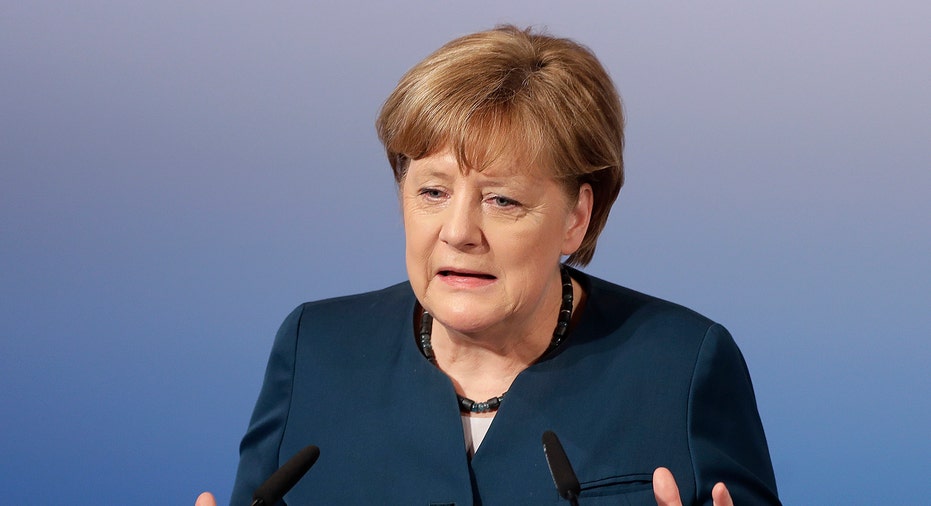Ahead of Trump Meeting, Merkel Says Trade Vital for U.S. and Germany

German Chancellor Angela Merkel underscored the importance of free trade in a speech to business leaders in Munich, before her first trip to meet U.S. President Donald Trump in Washington for talks on a range of issues, including defense spending.
Merkel is due to meet Trump for more than two hours on Tuesday, followed by a working lunch, her spokesman said .
Briefing reporters before the trip, a senior German official said he expected the talks to focus on foreign policy issues ranging from NATO and Russia to Syria, Middle East peace, Iran, North Korea and the European Union.
Talks between German officials and members of Trump's administration suggest the two countries will cooperate closely on policy towards Russia, the official said.
"The United States of America is a key trading partner for Germany and for the entire European Union," Merkel said. "Trade is advantageous for both sides and I'm looking forward to the chance to speak to the newly elected American president about these issues.
"I believe that direct, one-on-one conversations are always much better than talking about each other. Talking together instead about each other - that'll be my slogan for this visit, which I'm really looking forward to." Trump has called Merkel's decision to allow hundreds of thousands of refugees into Germany a "catastrophic mistake" .
He has also threatened to impose tariffs on German carmakers that import into the United States and has criticized Berlin for not spending more on defense. Another source of tension is Germany's 50 billion-euro trade surplus with the United States.
The United States is Germany's biggest export destination , buying German goods and services worth 107 billion euros ($114 billion) last year while exporting just 58 billion euros' worth in return. It is Germany's third-largest trading partner, just behind China and France.
Merkel said German companies employ about 750,000 people in the United States and 1 million to 2 million jobs in the United States depend indirectly on German companies.
CONVINCING ARGUMENTS ON DEFENCE
Causes of friction between Berlin and Washington also include an accusation by a senior Trump adviser that Germany profits unfairly from a weak euro and a threat to impose 35 percent tariffs on imported vehicles.
The senior German official also said Merkel was committed to boosting defense spending in line with a NATO target for military budgets to account for 2 percent of economic output, and would offer convincing arguments to Trump on this issue.
An 8 percent rise in the 2017 defense budget was "a clear sign that we are sticking to our commitments," the official said.
But the official described it as a "symbolic goal" and said the most important thing was to close holes in NATO’s defense capabilities, a view shared by Trump's national security adviser, Army Lieutenant General H.R. McMaster.
"The most important thing is to close the capability gap," the official said.
Germany's 2018 budget plan calls for defense spending to rise by 1.4 billion euros in 2018 to 38.45 billion euros, or 1.23 percent of gross domestic product, and to reach 42.3 billion euros in 2021.
That amounts to 8.3 billion euros more over the four years than previously planned, but it will still fall short of the 2 percent target, a second government official said.
(Reporting by Irene Preisinger in Munich, with additional reporting by Noah Barkin and Andrea Shalal in Berlin,; writing by Erik Kirschbaum and Andrea Shalal, editing by Ed Osmond, Larry King)



















